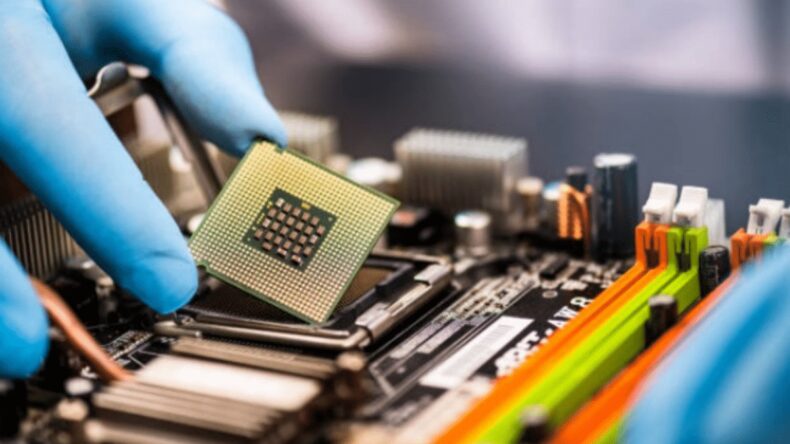The United States has negotiated an agreement with the Netherlands and Japan to impose limits on the exports of some advanced chips-making apparatus to China.

According to reports, the agreement would include specific export controls that the United States had adopted in October for companies based in the Netherlands and Japan, including Nikon Corp, ASML Holding NV, and Tokyo Electron Ltd.
Officials from the Netherlands and Japan visited Washington on Friday to join the discussions led by White House national security adviser Jake Sullivan. The discussions revolved around a wide range of issues that were “important to all three of us”, said John Kirby, the White House security spokesperson. He told the reporters about the possibility of the safety and security of emerging technologies being on the agenda.
However, no official announcements with respect to the chips deal have been made so far.
The White House only entertained Kirby’s earlier remarks.
Similarly, when asked about the Bloomberg report the Dutch foreign ministry as well as Japan’s Ministry of Economy, Trade, and Industry declined to comment.
The Netherlands’ Prime minister, Mark Rutte, had earlier indicated the opacity to disclose the results of talks with the US over new chip export restrictions for the semiconductor industry. Rutte termed this deal as a sensitive topic and said that the Dutch government would communicate diligently, in quite a limited manner.
US-China: the Chip War

The relations between US and China deteriorated in recent years, as the former has implemented a series of measures and restrictions to limit China’s access to chip technology, while the latter has invested billions into the semiconductor industry.
In October 2022 President Joe Biden’s office announced restrictions on Beijing’s access to U.S. chipmaking technology in order to slow its technological and military advances. The US had cited its national security and foreign policy interests, as the reasons for the export controls. It also enacted the CHIPS Act of 2022, which includes semiconductor manufacturing, design and research, and investments in manufacturing.
China retaliated against these restrictions and termed them as a violation of international economic and trade norms. It filed a dispute to reverse the US-imposed export restrictions at the World Trade Organization in December.
This deal would be a significant win for the Biden administration, which has had lengthy discussions with Dutch and Japanese officials for months
Implications of Chip restrictions
The Netherlands will have to expand the restrictions on ASML Holding NV, preventing it from selling its deep ultraviolet lithography machines. Similarly, Japan will set the same restrictions on Nikon Corp.

The CEO of ASML had a few days ago, warned about the unintended consequences of this campaign. In an interview given to Bloomberg news, he said “ if they (China) cannot get those machines, they will develop them themselves. This will take time, but ultimately they will get there.”
However, Japanese firms would still be able to sell non-advanced products to China under the regulation, and any drop in shipments to China could be substituted in the medium-to-long term by increasing and diverting output to other regions such as the United States, Germany, and India, said Akira Minamikawa, an analyst at research company OMDIA. He added, the Japanese government and firms may disagree with the export restrictions if it includes measures like a ban on sending engineers to their equipment customers as “that would bring too large an impact on their businesses.”
Due to the export controls implemented in October, many US equipment manufacturers have complained that this action had cost them access to the biggest market, as other overseas competitors operate in China for their products. Fiona Lim, a foreign exchange strategist at Malayan Banking Berhad, Singapore said “ this sets the next escalating move in the US-China tech war a bit more meaningfully and could weaken yuan sentiment a bit in the near term.”













